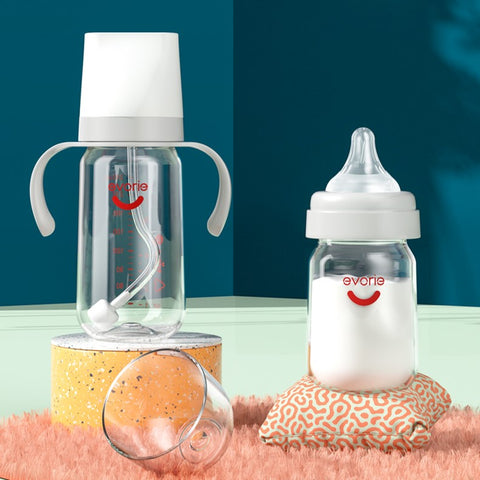
When do babies start to hold their feeding bottle on their own
Share
As parents, we all want to see our little ones grow and develop at their own pace. One of the many milestones that parents look forward to is when their baby starts to hold their own feeding bottle. Not only is it a sign of their growing independence, but it also means less work for the parents as they won't have to hold the bottle for their baby during feeding time.

But when can we expect our babies to start holding their own bottle?
According to a study conducted by the American Academy of Paediatrics, most babies start to hold their own bottle around 6-8 months of age. However, it's important to note that this can vary depending on the individual baby's development. Some babies may start holding their own bottle as early as 4 months, while others may not start until they are 9 months old or older.
One of the reasons why babies start to hold their own bottle at around 6-8 months is because their fine motor skills, the coordination of small muscle movements, have developed enough to allow them to grasp and hold objects. Additionally, babies at this age are also starting to sit up independently, which allows them to hold the bottle in a more upright position.

Another important factor to consider is the type of bottle you are using. Traditional round bottles can be difficult for babies to hold because they don't have a good grip. On the other hand, bottles that have a wider base and a contoured shape, like the Evorie Tritan baby feeding bottles, are designed to be easy for babies to hold. These bottles also have add-on accessories which can help babies to learn to drink on their own.

In conclusion, most babies start to hold their own bottle around 6-8 months of age, but it can vary depending on the individual baby's development and the type of bottle you are using. If you're looking for a bottle that can help your baby learn to hold their own bottle, consider Evorie Tritan baby feeding bottles. These bottles are made from durable, BPA & BPS-free materials and have a comfortable design that's easy for little hands to hold.
As always, it's important to consult with your pediatrician if you have any concerns about your baby's development. And don't forget, every baby is different, so don't compare your baby's milestones to others. Just enjoy watching them grow and develop at their own pace!
